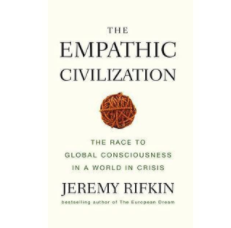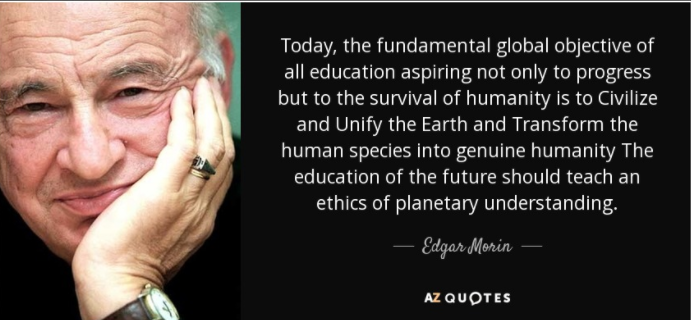The encyclical “Laudato Sì” recognizes that it is necessary to take a qualitative step forward in ecological education. “Information” on what is happening on our planet is not enough: we are well informed; the media keep us informed of the ecological catastrophes that are happening on our planet. We feel challenged by the news that tells us about the degradation of nature: the ozone layer, the pollution of the seas and air pollution, the disappearance of species, the easy spread of epidemics … But we need a “new consciousness” that translates into “new habits”. The encyclical acknowledges that we are in need of a real “re-education”. And why “reeducation”? Because we need to unlearn and learn again.
What is it about?
Until not long ago we thought that the ecological issue was a hobby of the political groups called “the Greens”: a little eccentric, anti-system people, concerned about the oceans, glaciers, the ozone layer … Shortly after the encyclical “Laudato Sì” appeared, I chose “ecological conversion” as the theme of a spiritual retreat. I perceived in some faces of the attendees’ certain displeasure: we are not from “Green Peace!”; we are not part of the group of “greens”. Shortly afterwards, at an ecumenical centre, I was asked to speak about eco-theology. And in not a few theologians I appreciated a remarkable disinterest as if it were a fashion of the moment. Perhaps the same attitude exists today in more than a few Church groups.
However, the encyclical called us all to “ecological conversion”, to a true metanoia or change of mentality, or new paradigm not only mental, but vital. Translated this in education key means that we need not only informative education, but a real re-education. And why re-education? Many of us were born in a context of high consumption and well-being. And that context makes it difficult to develop other habits: you have to unlearn, to learn.
- Because, first of all, we need to unlearn: we have to let go of certain ways of thinking: humans are so superior to nature that we can use it as we wish, according to our convenience. We have become used to waste, abuse, killing… Gandhi used to say that nature gives us everything we need, but not to all we aspire”. Juan López de Uralde published a book on the need to unlearn, which he titled “The planet of the stupid. Proposals to get out of the manure”. We need to unlearn
- Because, secondly, we need to learn again: we have to take a qualitative step forward. We need a new educational paradigm. Don Milani said that “everything in education comes down to disturbing the soul.” Yes, we also need our soul to be restless. We have unconsciously collaborated in crimes against nature, although “we did not know what we were doing”. We must change the habits of society that affect the income of companies. Environmental deterioration questions our behaviour.
- Because, thirdly, we need a new beginning: Let’s leave the stage of self-destruction behind. It is time to wake up to a new reverence for life. Let us develop the capacity to go out of ourselves towards the other to recognize creatures in their own worth, to take care of something for others, to avoid suffering and the deterioration of those around us. We must leave our isolated and self-referential conscience to take care of the environment, to react morally to the dispossession of nature. We have to be critical of the myths of modernity.
“We cannot say that this has taken us by surprise. Everything that is happening to us stems from climate change, which researchers and myself have been warning about for a long time. We have had other pandemics in recent years and warnings have been issued that something very serious could happen. Human activity has generated these pandemics because we have altered the water cycle and the ecosystem that maintains balance on the planet.(Jeremy Rifkin)

Need for pedagogical itineraries for ecological citizenship
That Pope Francis calls us to ecological conversion is not a concession to the fashion of the moment. It is a call that is born from the gravity of the moment that humanity is going through and from what may come to us soon afterward.
A few years ago, there were governments that proposed to replace the teaching of religion with education for citizenship. Obviously, the ecclesiastical hierarchy expressed its complaints. Surprisingly now Pope Francis broadens the horizon and speaks to us of “education for ecological citizenship”. The first proposal responded to the confrontations that had occurred in the two world wars of the 20th century: it was necessary that we learn to be citizens of the world and not fill our history with strife, war and guerrillas. Now we are asked for one more step: “to feel ourselves citizens of all the reality that surrounds us: to feel our not only human, but also ecological brotherhood: “brother sun, sister moon” … and generate a “new citizenship”: ecological citizenship. What seems to be a beautiful environmental slogan is, however, much more revolutionary than we think: it is about making the citizenship of states or nations prevail in humanity! Not religious or mono-cultural citizenship! Citizenship in which we all feel family and responsible for the planet, which is everyone’s home. And that is to proclaim the Gospel of Creation.
Let’s introduce educational processes that prepare us for this ecological citizenship. And some of the encyclical’s suggestions for achieving this are:
- To develop habits of ecological behavior.
- Not only give norms and laws that limit bad behavior, but educate in the cultivation of solid virtues.
- The duty to care for creation with small daily actions that become a lifestyle and spill goodness in society.
- Educate for responsible austerity, for grateful contemplation of the world, for the care of the fragility of the poor and the environment.
- Aesthetic education: love of beauty frees us from utilitarian pragmatism.
Environmental education can encourage various behaviors that have a direct and important impact on caring for the environment:
“Education in environmental responsibility can encourage ways of acting which directly and significantly affect the world around us, such as avoiding the use of plastic and paper, reducing water consumption, separating refuse, cooking only what can reasonably be consumed, showing care for other living beings, using public transport or car-pooling, planting trees, turning off unnecessary lights, or any number of other practices. All of these reflect a generous and worthy creativity which brings out the best in human beings. Reusing something instead of immediately discarding it, when done for the right reasons, can be an act of love which expresses our own dignity.”
Laudato Si, n. 211
The new educational paradigm
- The new educational paradigm is critical in the face of individualism, competitiveness, greed, indefinite progress as a myth.
- The new paradigm aims to achieve a new ecological balance with oneself (internal), with others (in solidarity), with all living beings (natural) and with God (mystic).
- It is a paradigm open to transcendence, to Mystery. Those who have educational responsibility must act as mystagogues of compassion for all reality, generators of authentic solidarity and care.

The Holy Spirit, generator of social movements, personal processes and transformation, acts and is poured out in the minds and hearts of women and men of good will. He produces ecological conversion that encourages unlearning of everything that has made us complicit in the destruction and deterioration of the environment, and invites us to learn a new lifestyle that will make us authentic citizens of this planet, builders of a new house for all, accomplices of the Spirit forever.
Prayer
Oh Holy Spirit, generator
of social movements
and personal transformation processes,
Come and pour out
in our minds and hearts!
We need to unlearn
everything that has made us complicit in the destruction and deterioration
of the environment.
It is urgent that we learn
a new lifestyle that will make us authentic citizens of this planet,
builders of a new house for everyone,
accomplices of yous forever
For contemplation
FOR THE BEAUTY OF THE EARTH
John Rutter
English Translation: Fr. Alberto Rossa, cmf
Impactos: 1540
